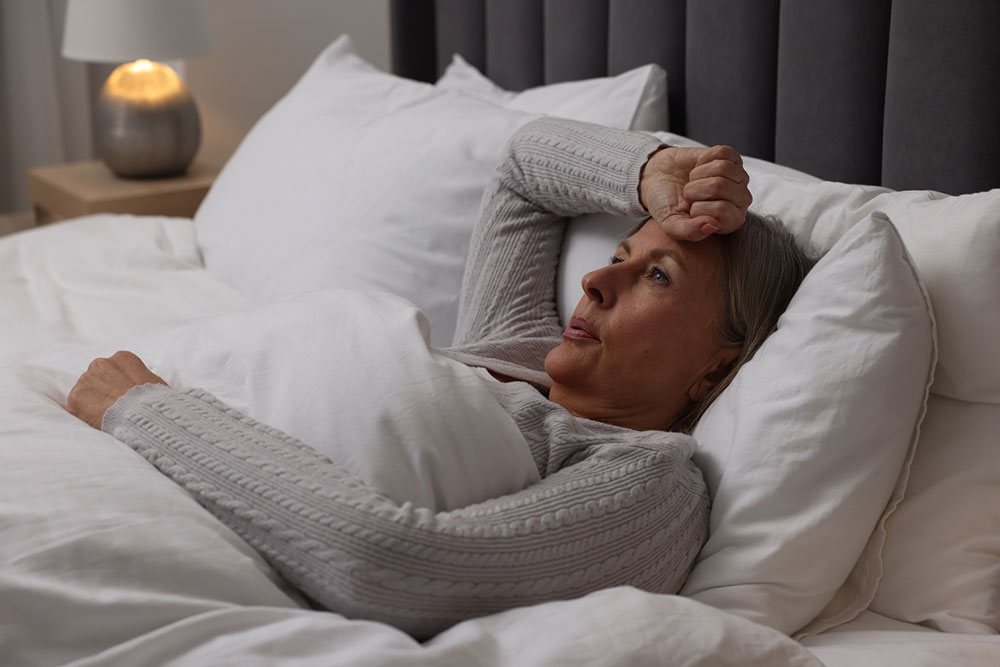
4 surprising facts about menopausal night sweats
Menopause is a phase following the last menstrual cycle. It is a result of a natural decline in reproductive hormones, which typically happens as women reach their 40s and 50s. There are many symptoms associated with menopause, and night sweats are common in this period. It is essential to recognize and address this symptom and manage it. So, here are some surprising facts about menopausal night sweats one should know.
1. Night sweats may differ from hot flashes
Research presented at the North American Menopause Society on the findings of night sweats and hot flashes suggested that night sweats may cause a higher level of stress and discomfort than hot flashes. Further, hot flashes could occur during the day or night but typically have shorter periods of sweating. Night sweats, however, are known to last a lot longer and lead to excessive perspiration.
2. Triggers are not yet known
The exact trigger for night sweats remains unknown. It could be triggered due to declining estrogen levels, but there is not enough evidence to establish the link conclusively. Some believe that when the ovaries stop producing estrogen, there is an increase in the follicle-stimulating hormone (FSH), which sets off the brain neurons that help control the body’s temperature. This may lead to night sweats as well as sleep deprivation associated with menopause.
3. Night sweats may last 10 years
About 75% of those who go through menopause may experience night sweats and hot flashes. However, some women may start experiencing these symptoms years before their last menstrual cycle. Anecdotal evidence also suggests that some in their 80s continue to experience night sweats.
4. Menopausal night sweats can be managed
Although menopause-induced night sweats may not have a cure, there are ways to deal with this symptom. Here are a few things one can try:
Slow breathing: Certain breathing techniques can help manage night sweats to some extent. For instance, taking six to eight breaths per minute for 15 minutes twice a day could help reduce the severity and frequency of nighttime sweating.
Staying active: Regular exercise can help in managing both hot flashes and night sweats, in addition to improving overall health. One can start slowly with a short, simple workout routine and then move on to an elaborate exercise regimen.
Controlling immediate environment: One can ensure their living space is cool, especially at bedtime, to deal with sudden night sweats and changes in body temperature. Using bedding that can regulate air and temperature, like a cooling mattress, and keeping the air conditioning on at night can help the room stay cool.
Nevertheless, upon experiencing any discomfort, one should consult a doctor to find suitable ways to manage menopause and its symptoms.